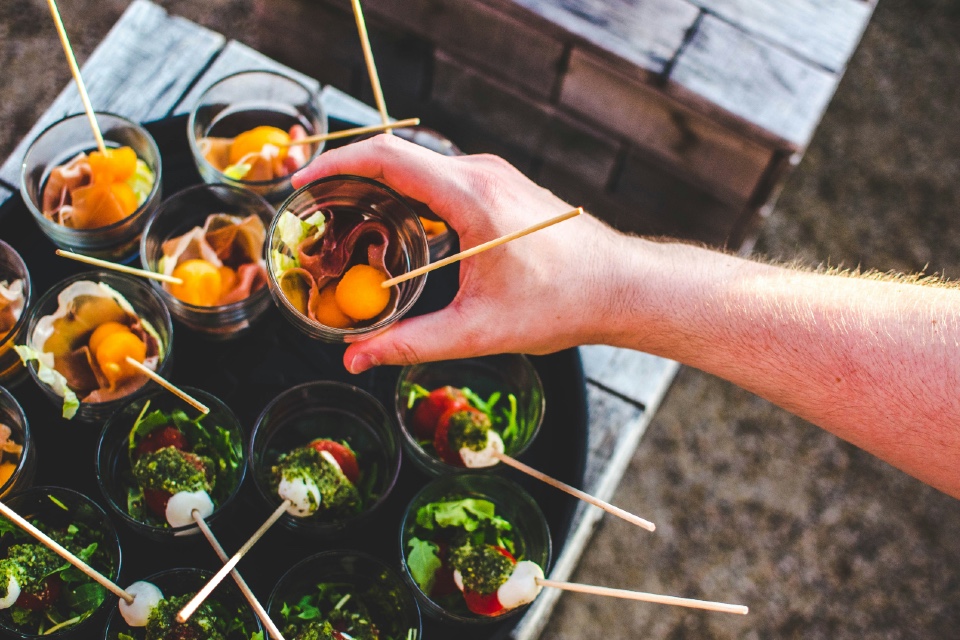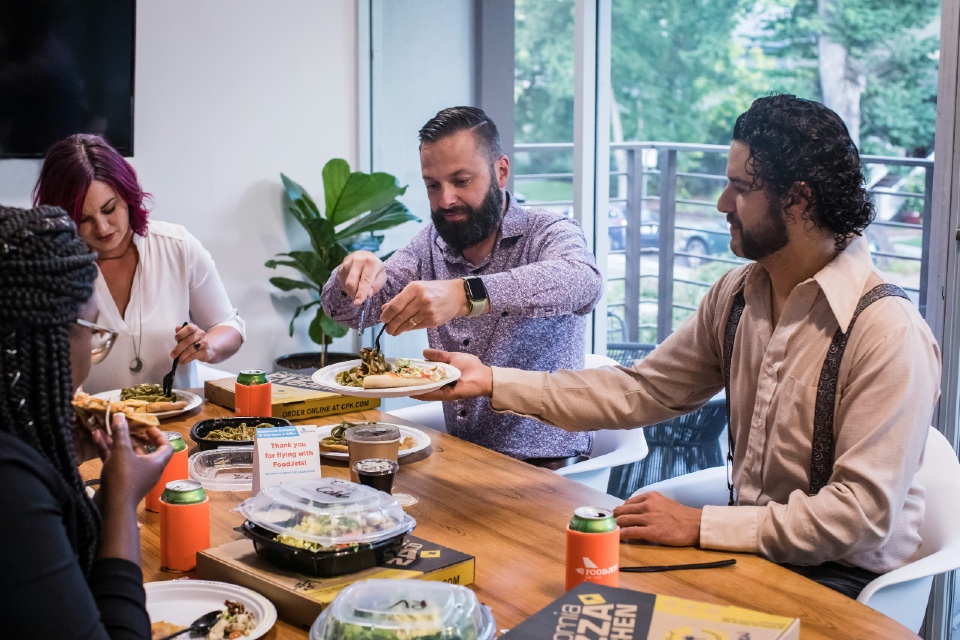Sustainability has moved from the margins and onto the main menu. Corporate event organisers and catering providers are under increasing pressure to deliver high-quality dining experiences that align with their organisation’s ESG commitments. But reducing environmental impact doesn’t mean reducing flavour or guest satisfaction. Across the UK, the catering sector is finding new ways to cut carbon, minimise waste, and source responsibly, while still delighting delegates and diners…
Local, Seasonal, and Responsible Sourcing
One of the most effective ways to lower catering’s carbon footprint is to shorten supply chains. Sourcing ingredients locally and seasonally reduces transport emissions and supports regional producers.
Leading caterers are moving away from imported, resource-intensive ingredients and designing menus around what’s fresh and available nearby. This not only improves sustainability, but also adds authenticity and provenance, qualities increasingly valued by clients and guests alike.
Many organisations are also setting procurement standards that require suppliers to meet environmental certifications such as Red Tractor, Fairtrade, or MSC, ensuring traceability across their food supply.
Plant-Forward Menus Gain Ground
The shift toward plant-based and flexitarian dining continues to accelerate, driven by both environmental and health considerations. Plant-forward menus can reduce the carbon impact of meals by up to 70%, while offering the variety and innovation event guests expect.
Top caterers are rethinking how plant-based options are presented, making them central to the menu rather than an afterthought. From creative vegetable-based mains to low-impact proteins such as pulses and mushrooms, the emphasis is on taste, texture, and presentation.
Fighting Food Waste with Data and Design
Food waste remains one of the biggest sustainability challenges in event catering. In response, caterers are using data-driven waste tracking systems to monitor consumption patterns and adjust portioning in real time.
Event organisers are also designing experiences with waste reduction in mind, offering smaller, more frequent servings, or ‘smart buffets’ that are replenished based on demand. Surplus food donations, composting schemes, and reusable serviceware are becoming standard best practices across leading venues.
Packaging and ESG Accountability
Single-use plastics are being phased out rapidly in favour of recyclable, compostable, or reusable packaging. In 2025, sustainability reporting is also becoming more rigorous, with clients requesting carbon and waste data as part of post-event evaluations.
For many catering teams, this marks a shift from viewing sustainability as a compliance issue to treating it as a competitive differentiator: a sign of professionalism, innovation, and values-led leadership.
The Future of Sustainable Catering
Sustainability and quality are not mutually exclusive. By embracing local sourcing, plant-based creativity, and smart waste management, caterers can create experiences that are both environmentally responsible and deeply memorable.
In doing so, they’re proving that good business and good food can (and should) go hand in hand.
5 Sustainable Catering Practice Top Tips
- Source Local and Seasonal
Partner with nearby farms, fisheries, and producers to cut transport emissions and highlight fresh, seasonal ingredients with authentic provenance. - Go Plant-Forward
Design menus around plant-based dishes and lower-impact proteins to significantly reduce carbon output, without sacrificing flavour or creativity. - Track and Tackle Food Waste
Use smart data tools to monitor consumption and adjust portion sizes. Donate surplus food or compost leftovers to achieve zero-waste targets. - Eliminate Single-Use Plastics
Switch to reusable, recyclable, or compostable packaging and serviceware that meet emerging ESG and waste reduction standards. - Measure and Report Impact
Integrate carbon and waste metrics into post-event reporting to demonstrate measurable progress against your organisation’s sustainability goals.
Are you searching for Catering solutions for your next project? The Event Organisers Summit can help!
Photo by Aneta Pawlik on Unsplash






